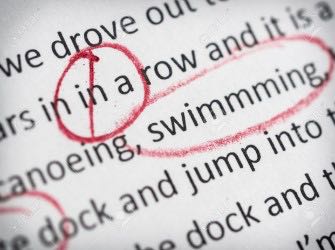A model of this text was initially printed within the glorious ‘Educate Secondary‘ journal – you may subscribe HERE. It’s effectively price a learn!
Controversies and complaints about spelling are centuries previous. In his Preface to ‘A Dictionary of the English Language’, in 1755, Samuel Johnson derided writers for his or her “ignorance or negligence”. At the moment, the Web is suffering from spelling errors and would-be Johnson-types, correcting and chastising errors as they go. Amidst the ever-present debates, our college students face one of many age-old renewals of emphasis on spelling, with it as soon as extra changing into a major a part of evaluation at GCSE and extremely distinguished within the KS2 writing frameworks.
The English language is a dynamic and ever-changing factor: new phrases are coined day by day, in addition to archaic oddities littering our lexicon. It’s possible you’ll ask, what likelihood do our college students have of getting spelling proper after they face over 5 hundred thousand phrases within the dictionary? After all, they do face an uphill battle.
One of many vital points with spelling requirements is the way in which we go about educating it in our faculties. Relationship again to an analogous period as Samuel Johnson, our dependancy to countless spelling lists has served our college students badly. Armed solely with spelling lists for normal testing, now we have for generations utilised a shallow and poor technique for educating spelling.
The notion that ‘Look, cowl, write, test’ is the default technique for most kids and lecturers is a problematic one. It rests on the idea that spelling may be visually memorised. Although this cue can show considerably useful (it typically wants vital repetition and ample present phrase data), it strains our college students’ psychological assets. We don’t study a language successfully through the use of lists, nor wanting on the phrases and hoping they stick in our reminiscence; ditto with spelling.
It’s possible you’ll recommend a spell checker does the job, however then such instruments can’t spot a homophone (to, too or two; ballot and pole) they usually generally misjudge a major variety of errors, while not offering a lot studying for our college students.
If we’re to organize our college students to beat the examiners who’re sticklers for spelling, and be ready for life-long spelling accuracy, we have to take a deeper strategy to studying phrases and their spelling patterns. We have to foster ‘phrase consciousness’. That’s to say, an express consciousness that phrases are richly related, exist in households and exhibit widespread patterns (although few ‘spelling guidelines’ show dependable – simply scan the rule breakers for ‘An ‘i’ earlier than ‘e’ after c’ for a begin). In brief, we have to join spelling to the which means of phrases.
As early as attainable, we have to train spelling as a part of a wealthy, dynamic engagement with phrases. We have to assist our college students make sound connections, dig into the historic roots of phrases, and to hunt out phrase components, observing widespread prefixes and suffixes as a matter of behavior as they write and proof-read.
Each topic area has its important vocabulary. Academics ought to observe widespread phrase roots – ‘geo’ in Geography; ‘photograph’ in Science – and explicitly spotlight such connections and unveil their which means. Phrase histories (etymology) may be fascinating and illuminating. Why does ghost have a silent ‘h’? Properly, it’s a 5 hundred yr previous mistake from a Dutch printer that’s enshrined in our historical past!
Academics can foster an consciousness of spelling by specializing in phrase components (the examine of morphology), sharing the most typical prefixes within the educational language of faculty, corresponding to ‘dis-’, ‘un-’, ‘re-’ and ‘in-‘, noting phrases, observing patterns and even coining new, inventive phrases.
Finally, we have to assist our college students discover the which means and patterns in spelling, deploying a number of methods as they go. ‘Look, cowl, write, test’ could also be a begin, but it surely should be accompanied by many different strategies and a wealthy data of phrases if we’re going to assist our college students keep away from ‘ignorance or negligence’.
Chapter 6 of my new guide ‘Closing the Vocabulary Hole’ is targeted on spelling, entitled ‘We have to speak about spelling‘. You possibly can order the guide from Amazon HERE and Routledge HERE.

